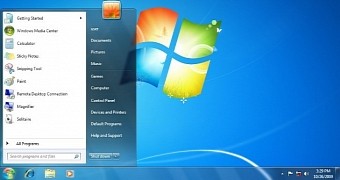Earlier this week, it has emerged that AMD could release Windows 7 drivers for its new Ryzen processors, even though the company was expected to make the new chips exclusively available with Windows 10.
But in a statement released today, AMD explains that this is not the case and its original plan hasn’t changed, so Ryzen will only work with Windows 10. In other words, those who hoped to get Windows 7 drivers and use Ryzen with an older system won’t be able to do it, and upgrading to Windows 10 seems to be the only option.
“To achieve the highest confidence in the performance of our AMD Ryzen desktop processors (formerly code-named ‘Summit Ridge’), AMD validated them across two different OS generations, Windows 7 and 10. However, only support and drivers for Windows 10 will be provided in AMD Ryzen desktop processor production part,” a company spokesperson was quoted as saying.
With this decision, AMD aligns with Microsoft’s efforts to push users to the latest version of Windows 10 for new processors, but also with Intel, which already confirmed that all its new chips would only work with the most recent release of Redmond’s operating system.
The push for Windows 10
Back in January 2016, Microsoft announced through the voice of Windows boss Terry Myerson that the new generations of processors would only be supported by the latest Windows version, in this case Windows 10. Both Intel’s Kaby Lake and AMD’s Ryzen work exclusively on Windows 10.
Myerson explained that this decision has been made mostly because of the technologies that are implemented in Windows 10 and which allow processors to reach their maximum performance.
“Going forward, as new silicon generations are introduced, they will require the latest Windows platform at that time for support. This enables us to focus on deep integration between Windows and the silicon, while maintaining maximum reliability and compatibility with previous generations of platform and silicon,” Myerson said.
In the end, however, Windows 7 users seem to be the ones most affected by these decisions, and judging from third-party stats, there are a lot of them. More than 40 percent of the world’s computers are still running Windows 7 at this point.

 14 DAY TRIAL //
14 DAY TRIAL //